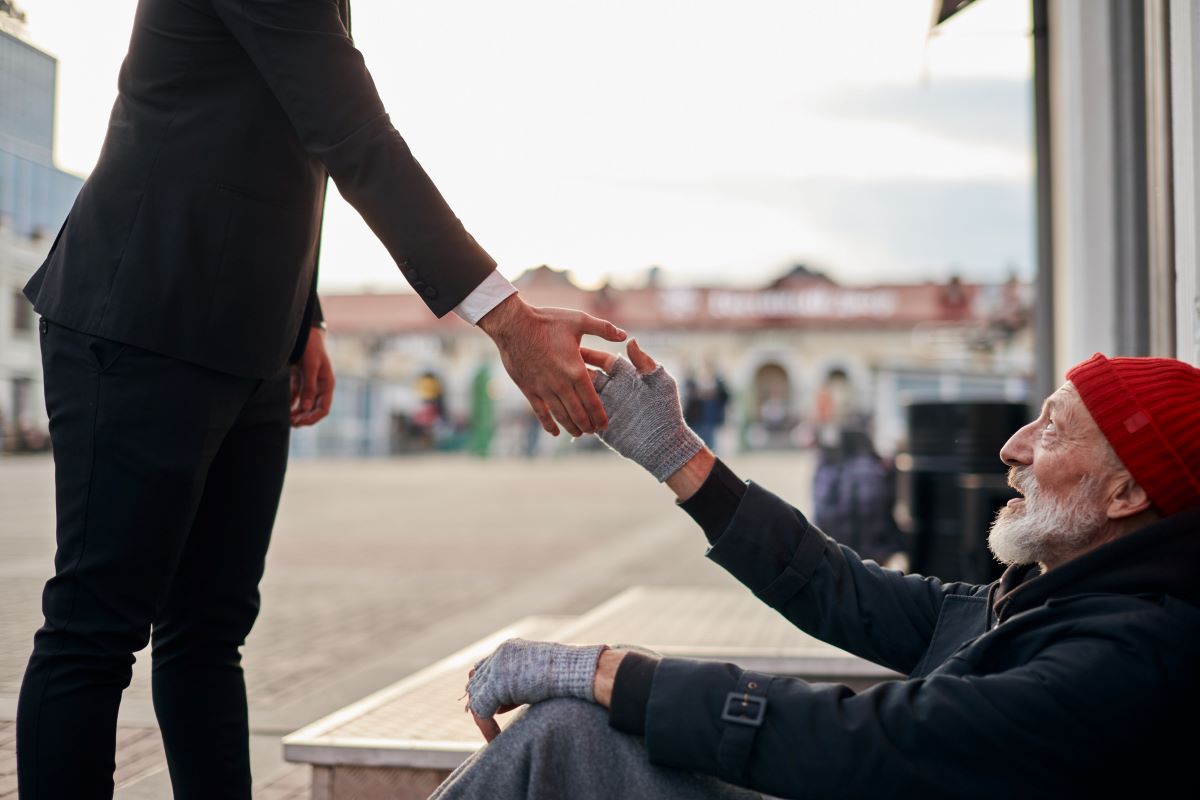There is this one question that I always find bouncing around this thick skull of mine: How do I get folks to start caring about homelessness? Or, more specifically, how do I convince them that this is a cause they should care about?
How Do I Convince Folks That Homelessness Is Their Business?
I’ve learned that the attitude “It won’t happen to me” is what prevents people from caring about solving homelessness. And, boy, let me tell you, I believed it too. There is no more prominent wake-up call than waking up one day and realizing homelessness can happen to me, and it is happening to me right now.
Although the causes of homelessness are varied, negative messaging has a tight grip on the public’s perception of homelessness. Stereotypes and assumptions about homeless people create a sense of otherness that makes housed people feel like homelessness can never happen to them – but it’s untrue.
Homeless people are not very different from me or you. They struggle and have struggled with the same kinds of issues you struggle with. It is true that, like many others, including myself, you are simply one disaster away from switching places with a homeless person.
Even without a disaster, it can happen. Lack of affordable housing, income inequality, and poverty are issues many Americans face. Many people are living paycheck to paycheck. Many people are even a paycheck away from losing their homes.
Sometimes, we forget that we have so much more in common with a homeless person than we do with a millionaire.
There are thousands, millions, of homeless families living in shelters and in their cars. There are too many homeless people going to work every day for an employer who is not paying them a living wage in a city that does not have enough available, affordable housing. They struggle with their mental health. They struggle with access to healthcare, food, and transportation.
Beyond that, the homeless prevention programs in their city lacked the skills and resources to help them. They lacked familial and community support when they needed it most. Then, one day, they couldn’t keep themselves afloat anymore. They fell through the cracks in a broken system.
I just described my story of how it happened to me. It happened just like that for me and so many other people. Homelessness can happen to you, too.
So, in a nutshell, yes, homelessness is your business because it can be a part of your life at any moment. Solving homelessness ensures that it never happens to you or anyone again!
Beyond benefiting us individually, solving homelessness is also good for our communities.
According to CaringWorks, a non-profit serving the homeless community in Los Angeles, homelessness causes a ripple effect throughout the community. It impacts the availability of healthcare resources, crime and safety, the workforce, and the use of tax dollars.
Housing homeless people helps the community. It provides formerly homeless community members with the stability to take care of their mental and physical health. This helps them maintain jobs and contribute to their communities more significantly, such as by shopping at local businesses and joining faith-based organizations.
Everyone benefits from reducing homelessness.
In the article The Business Case for Ending Homelessness, we learn more about the healthcare cost of homelessness.
As people stabilize in housing, their dependence on emergency services drops, and their health outcomes improve significantly.
Consider the following facts on the cost of healthcare for homeless people:
- Most homeless people lack health insurance, a public provision for healthcare, or a primary care physician.
- Almost 33% of all visits to the emergency department are made by chronically homeless people. Emergency departments are not equipped to meet the psychosocial needs of homeless patients and cannot assist them with housing, substance abuse treatment, or mental healthcare.
- Homeless people visit the emergency department an average of 5 times annually, and the most frequent users visit them weekly. Each visit costs $3,700, totaling $18,500 spent annually for the average user and up to $44,400 for the most frequent users.
- On average, homeless people spend three nights per visit in the hospital, which can cost more than $9,000.
In a perfect world, solving homelessness would not need much convincing. It would not need to be argued for with business and economic statistics. People shouldn’t need to die on the streets, not here in the United States.
However, an ethical argument is not one I can make. Or maybe it’s too late for an ethical argument. But here it is anyway: Solving homelessness is still the right thing to do.
When I was homeless, someone very close to me, who was there for me when no one else was, said this: If we have the power to help, we have a responsibility to do it. If we know housing is the solution, then it is our collective responsibility to house everyone. We have to do it for those who are homeless now and those who may become homeless later.











